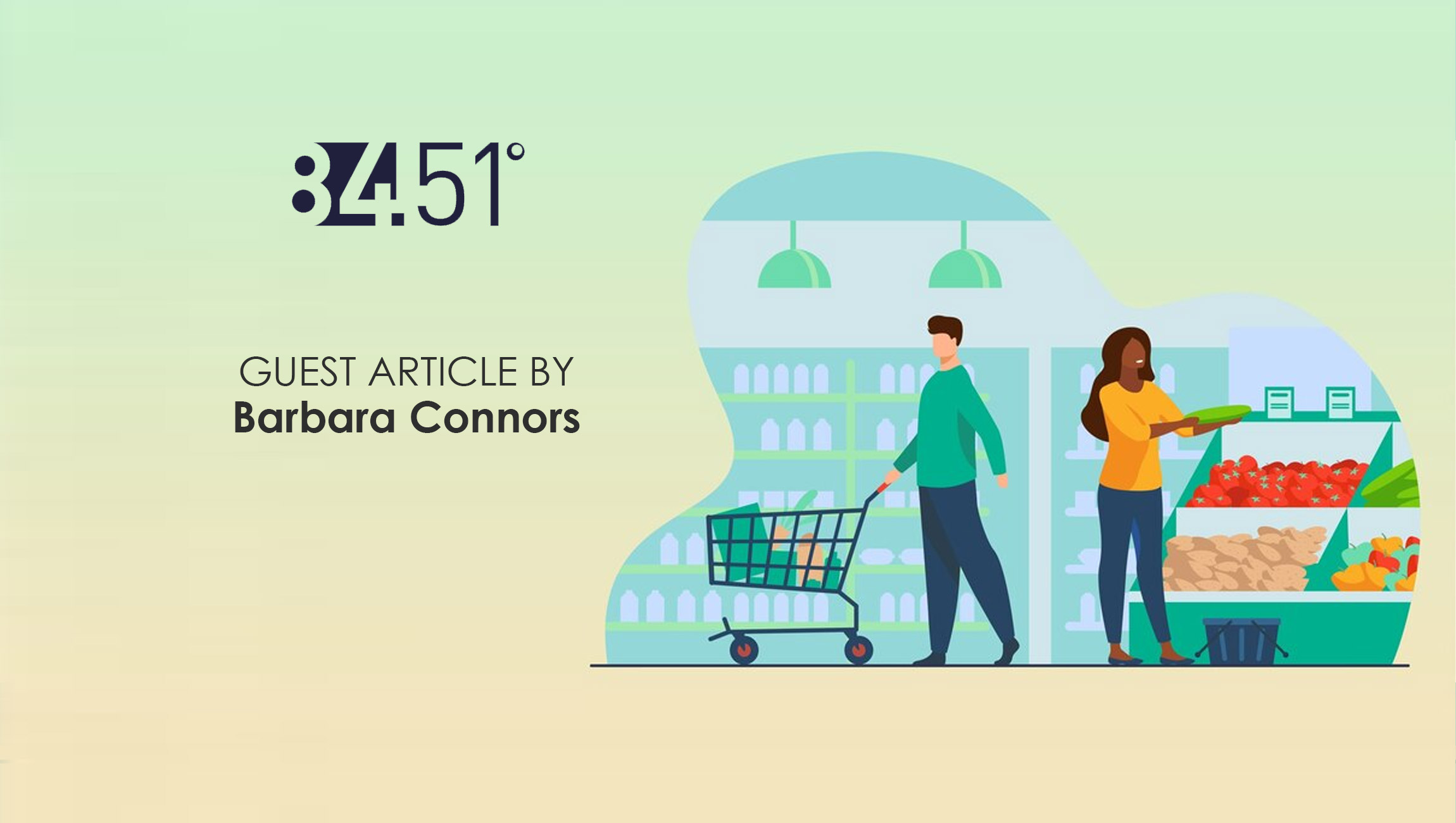The past few years have seen grocery shoppers adjust their habits to accommodate swiftly rising inflation and the price of household goods. As we move into 2024, they’re still adapting to keep their budgets afloat, but they’re also turning some of that focus toward improved health in various aspects of their lives.
In 2023, grocery shoppers felt the burden of a variety of external factors that weighed on their attitudes and their wallets. From inflation and the rising cost of living to political, health, and social tensions, it affected their perspectives and behaviors and prompted some changes to how they shop both online and in-store. They modified where and what they ate. They altered how and when they shop. And with so much uncertainty in the world, they tended to feel more optimistic about the areas of their lives over which they have some control.
Research from 84.51°’s Consumer Digest 2023 Year in Review report showed that while customer concern over inflation declined from February to July and leveled out for the last four months of the year, grocery shoppers still took several measures to make the most of their budgets. They looked for sales and coupons more often, cut back on non-essentials like snacks and candy, switched to lower-cost brands more often, purchased fewer items on their grocery trips, and cooked from scratch or with limited pre-prepared foods more often.
As customers adapted to higher prices and economic uncertainty, their optimism was largely reserved for the more controllable factors in their lives. At the end of last year, shoppers said the areas they felt most optimistic about as they approached 2024 were their personal relationships, jobs/professions, and their health.
At the start of the new year, our research looked at continued inflation and the changes shoppers plan to make in 2024. Our January Consumer Digest report showed that shopper concern over inflation fell to its lowest level in the last 12 months, with 56% of shoppers saying they are extremely concerned about inflation, down from 66% in January of 2023 – a number that may be indicative of perceiving a new normal. However, since we’ve also seen recent increases in the financial markets, this may signal rising consumer confidence. Looking deeper, household composition had a significant impact on those numbers, with 65% of shoppers who have kids saying they’re concerned with inflation, compared to 48% of shoppers who reported having no kids in their households.
Marketing Technology News: MarTech Interview with Gagandeep Singh, Vice President of Global Marketing at Blancco Technology Group
As is often the case in January, shoppers set goals and objectives for the coming year. While a quarter of shoppers said they never set New Year’s resolutions, more than half (58%) stated that they’re setting goals this year, with the lion’s share of those commitments going toward improving their physical, mental, and fiscal health. When asked what area(s) of their life their New Year’s resolution goals apply to, 79% said their physical health, while 53% said personal finances, and 42% named their emotional well-being.
Achieving those physical goals will take many forms in the coming year. More than half of customers (58%) say they’ll be following a diet this year, with the most popular plans being low carb (22%), high protein (19%), and intermittent fasting (16%). Despite the growing popularity of GLP-1 weight loss drugs like Ozempic and Wegovy, 44% of shoppers said they’re not interested at all in using those drugs, and 32% said they’re not even familiar with them. Top reasons for following a specific diet include supporting a healthier lifestyle, feeling better, weight loss, and increasing energy.
When they’re filling their carts, customers are reading labels to see if products can help them reach their physical health goals. In addition to healthcare products like medicines and vitamins, the top categories that prompt shoppers to read product labels include frozen food, cereal, and shelf-stable products. They’re seeking label claims related to boosting overall health and wellbeing, and are less motivated by label claims focusing on the way the food was raised. The most important food product label attributes identified by shoppers include guaranteed freshness, good for your health, nutritional value, and gives you energy.
To improve their financial well-being, shoppers say they’ll be curbing discretionary spending and focusing more on savings and investments this year. More than half (53%) say they plan to spend more on savings and investments. They claim they plan to cut spending on dining out, outside-the-home entertainment, clothing, and beauty services. They won’t change spending on must-haves like prescription medicine, medical providers and services, or household essentials. However, more than a quarter of customers (27%) state they’ll spend more on travel – an experience often linked to improved overall emotional well-being, and 23% say they plan to spend more on supplements in 2024.
Anyone who’s ever made a New Year’s resolution knows that only time will tell if customers follow through on their objectives for the coming year. However, it’s crucial for marketers to continually track these attitudes and behaviors to understand how to best meet shoppers’ changing needs and desires. The brands that tap into these trends will uncover new opportunities to engage grocery shoppers through meaningful experiences that help them achieve their goals and empower them to take control of what they can in a world increasingly full of unknowns.
Marketing Technology News: Unlocking MarTech Insights for Success: Lessons Learned from the Top 300 Companies











